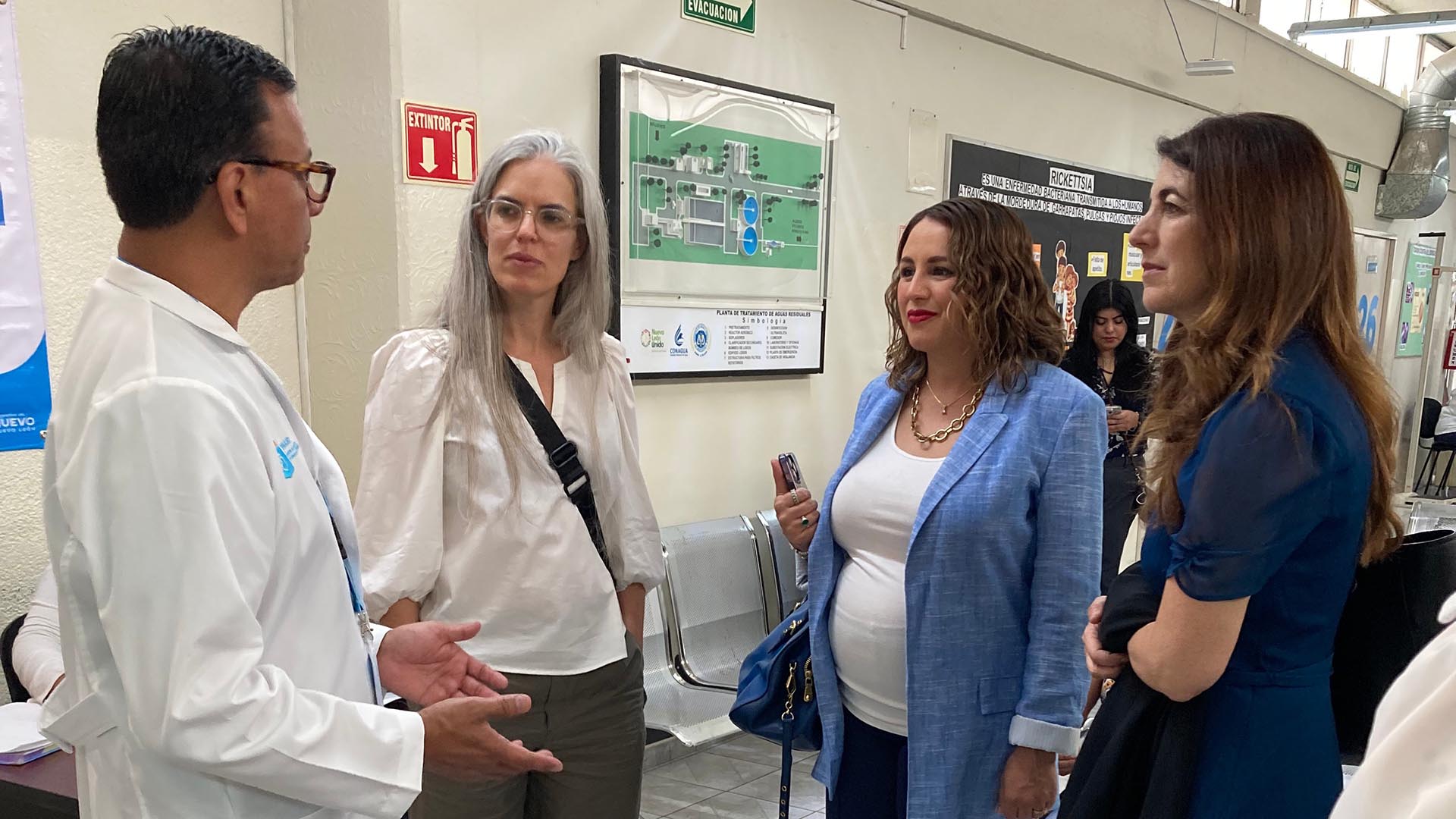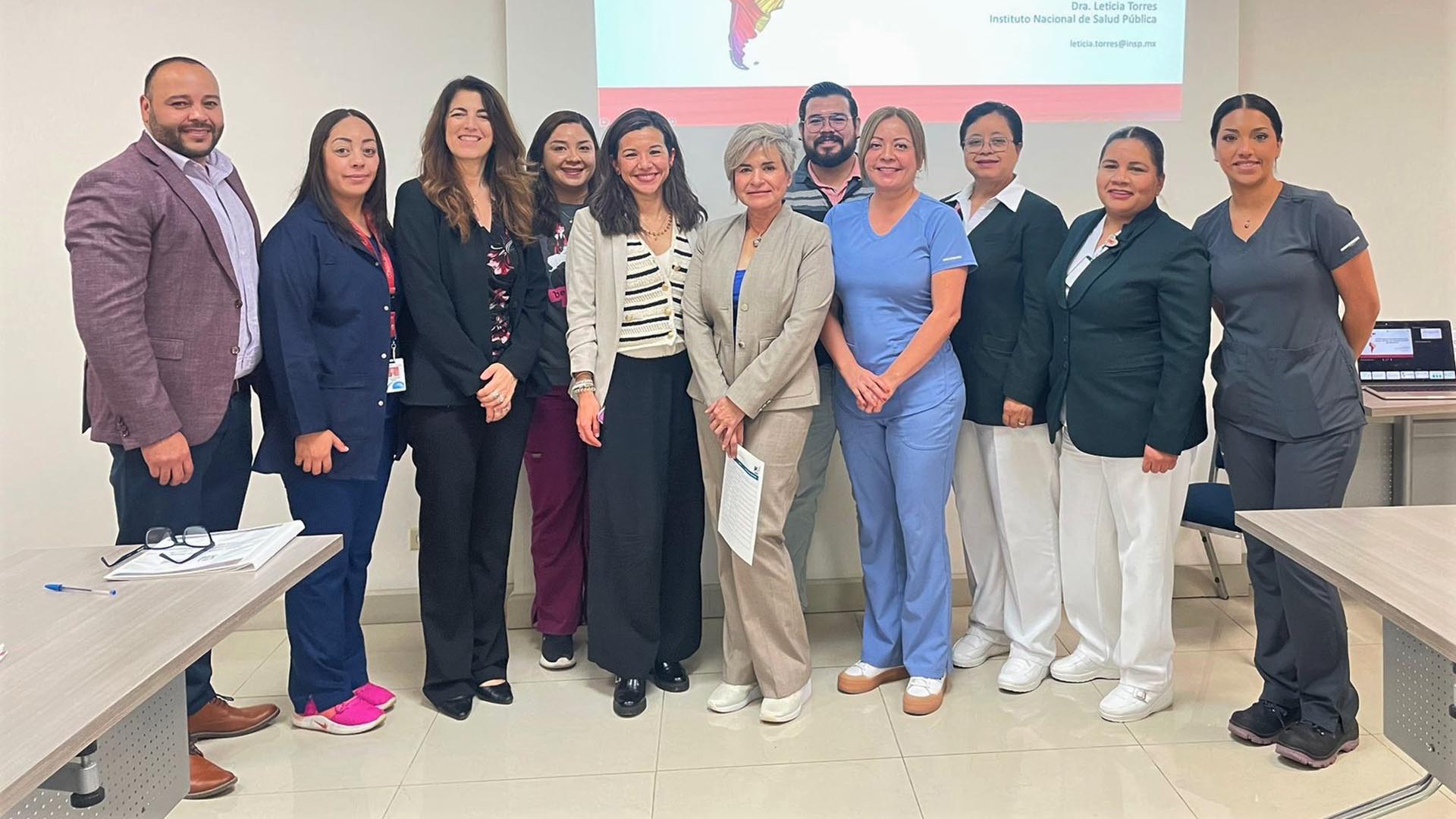The LISTOS Center currently supports two innovative research projects on colorectal cancer screening and breast cancer early diagnosis, as well as a pilot project to study implementation of an ongoing program to improve human papillomavirus testing among women working in factories and hotels.
Research Projects
-
Colorectal Cancer

The LISTOS Colorectal Cancer Research Project aims to improve colorectal cancer screening (CRCS) in Mexico and reduce colorectal cancer-related morbidity and mortality through the implementation of culturally relevant, effective, and cost-effective CRCS interventions.
Colorectal cancer is the second leading cause of cancer mortality in Mexico and incidence continues to increase. Although Mexico has several integrated public health systems capable of delivering screening and treatment, there is a lack of organized CRCS programs.
By working with ISSSTELEON, a publicly funded health system in Nuevo Leon, this project will develop a context-appropriate, sustainable, and scalable CRCS program that can be transferred to other health systems throughout Mexico. To accomplish this, the project team will:
- Adapt and evaluate evidence-based interventions (EBIs) to increase CRCS rates, including patient education, patient reminders, and patient navigation;
- Design implementation strategies to deliver these EBIs, including practice training, practice champions, and auditing and feedback;
- Evaluate the effectiveness, cost-effectiveness, and implementation outcomes of the EBIs.
This project is groundbreaking and first of its kind as an implementation research study performed with rigorous implementation science methodology on CRCS in Mexico.
Lead Investigator
Martin Lajous, MD, ScD, National Institute of Public Health of Mexico (INSP)
-
Breast Cancer

The LISTOS Breast Cancer Research Project aims to improve the timeliness of breast cancer diagnosis in Mexico through the implementation of a rapid diagnostic system to improve patient outcomes and quality of life and reduce health costs.
Mammography screening rates in Mexico are low, and the majority of patients are not diagnosed until the disease is already in advanced stages, leading to a survival rate of only 72%. Prior studies have found that the vast majority of public sector breast cancer patients in Mexico City face lengthy delays between their first consultations and the initiation of treatment, contributing to worse outcomes.
This project is designed to address this pressing need for improved breast cancer control in Mexico by:
- Assessing the barriers, facilitators, and organizational readiness for implementation of an integrated system for rapid breast cancer diagnosis across primary care centers in Monterrey, Nuevo León;
- Developing strategies, including practice facilitation, to improve the implementation of an integrated system for rapid breast cancer diagnosis;
- Evaluating the impact of practice facilitation on implementation of a rapid BC diagnosis system and determine effectiveness on patient outcomes.
In the long-term, this project will advance implementation science by adapting and validating a Spanish language organizational readiness measure and evaluating the use of practice facilitation to improve readiness for implementation of cancer control practice change in Mexico and other lower and middle-income countries.
Lead Investigator
Karla Unger-Saldaña, MD, DSc, National Cancer Institute of Mexico (INCAN)
-
HPV Pilot Project

The LISTOS HPV Pilot Project aims to improve HPV screening rates among under-screened populations in Mexico through the implementation of an HPV-testing intervention in maquiladoras (factories) in Northern Mexico.
Cervical cancer (CC) is both preventable and easily detected in early stages through screening, yet it remains the second leading cause of cancer death among women in Mexico. Despite the effectiveness of CC screening in reducing up to 80% both incidence and mortality in developed countries, in Mexico screening participation rates remain very low with less than 30% of women aged 20 or older reported ever being screened for CC by 2018. There is an urgent need to implement evidence-based interventions to avert CC and prevent deaths, particularly for women with limited access to care.
This project is designed to address this need by:
- Determining the acceptability, appropriateness, feasibility, and fidelity of an intervention for self-sampling HPV testing in Northern Mexico maquiladoras (factories) and identifying the determinants for optimal implementation;
- Adapting an organizational readiness measure for use in a major public healthcare provider in Mexico for implementing evidence-based interventions for HPV-based cervical cancer screening.
The long-term goal of the project is the adoption of HPV testing in worksites as an effective CC prevention and control policy across the country.
Lead Investigator
Leticia Torres-Ibarra, ScD, National Institute of Public Health of Mexico (INSP)